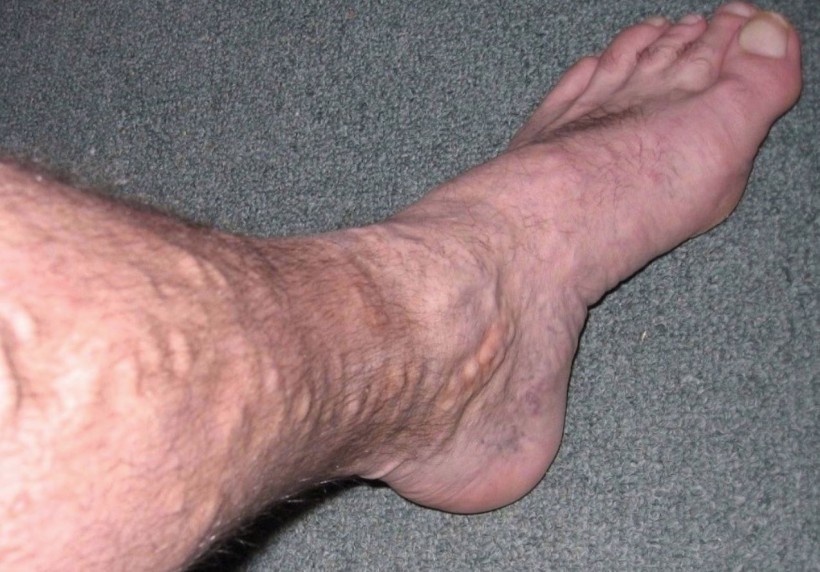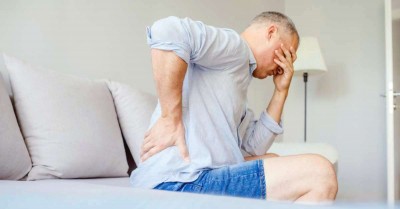All you need to Know about Varicose Veins
Warning: Undefined variable $post in /home/dietofli/public_html/wp-content/plugins/code-snippets/php/snippet-ops.php(584) : eval()'d code on line 3
Warning: Attempt to read property "ID" on null in /home/dietofli/public_html/wp-content/plugins/code-snippets/php/snippet-ops.php(584) : eval()'d code on line 3
The estimated reading time is 3 minutes
Warning: Undefined variable $post in /home/dietofli/public_html/wp-content/plugins/oxygen/component-framework/components/classes/code-block.class.php(115) : eval()'d code on line 3
Warning: Attempt to read property "ID" on null in /home/dietofli/public_html/wp-content/plugins/oxygen/component-framework/components/classes/code-block.class.php(115) : eval()'d code on line 3

Varicose Veins are swollen, enlarged, and twisted veins. They often appear dark purple or blue in color. This issue is quite common among adults, and indeed, one in every four adults in the US has varicose veins. Varicose veins develop when valves in the veins fail. In most cases, they do not need any treatment, but when they cause considerable discomfort, then it becomes necessary to seek the assistance of an experienced cardiologist such as Dr. Rishin Shah in Plano, TX. Below are some crucial facts you should know about varicose veins. (1)
Symptoms
In most cases, patients do not experience any pain or discomfort, and the only noticeable symptoms of varicose veins are the visibly swollen and twisted veins that are blue or dark purple. In some rare circumstances, patients with varicose veins can experience symptoms such as:
- Swelling of the ankles and feet
- Legs feeling uncomfortably achy or heavy
- Muscle cramps especially at night
- Itchy or dry skin, which appears thinner, particularly over the swollen veins
- Throbbing or burning sensation in legs
- Lipodermatosclerosis – hardening of the fat under the skin
- Restless leg syndrome
- Venous eczema- the skin covering the affected areas turns red (2)
Causes of Varicose Veins
Veins have valves that ensure that the blood can only flow in one direction. However, when the walls of the veins are overstretched and less flexible, the valves can get weaker. Consequently, blood is able to move in a backward direction. In such a case, blood accumulates in the veins, which swell and become enlarged. The further a vein is from the heart, the more likely it is for it to be affected.
Any issue that puts the abdomen under pressure can lead to varicose veins. Such issues include constipation and pregnancy.
Risk Factors
Experts are yet to establish the reason why veins trench and why the valves in the veins fail. In most cases, this happens without any known reason.
However, some possible risk factors include:
- Pregnancy
- Family History of varicose veins
- Being over 50 years old
- Standing for a long time
- Obesity
- Menopause
Treatment
If varicose veins are causing you significant discomfort, you should seek medical assistance from a cardiologist, because treatment is available.
The cardiologist may prescribe the following:
- Laser Surgeries
- Endothermal Ablation
- Ligation and stripping
- Sclerotherapy
- Endoscopic vein surgery
Prevention
There are measures that you can take to prevent varicose veins.
Some of them include:
- Exercise regularly
- Manage your weight
- Avoid sitting with the legs crossed
- When you sit or sleep, do so with your legs raised on a pillow
- Avoid standing still for extended periods
The Takeaway
In conclusion, it is apparent that varicose veins are a common medical issue. Although the condition is painless in most circumstances, it can cause significant discomfort for some people. Luckily, there are several medical solutions to this problem. If you are looking for a reliable cardiologist to help you in treating varicose veins, Dr. Shah is the answer. Contact Prime Heart and Vascular to get in touch with the cardiologist.














